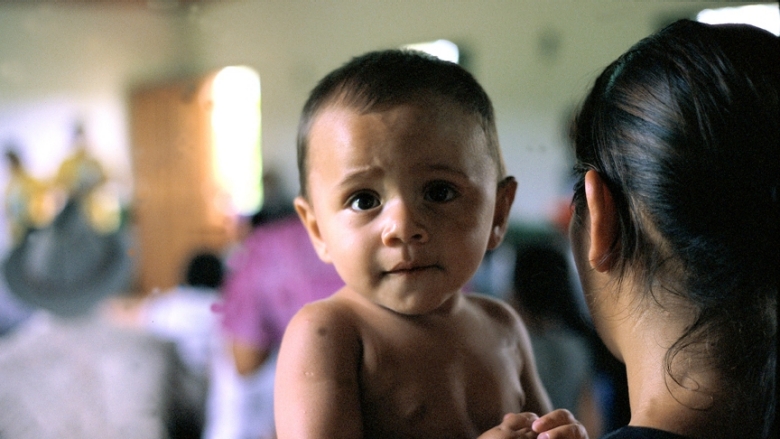In Nicaragua, many children in poor rural areas don’t have access to adequate nutrition and early childhood stimulation, and begin school without the basic skills needed to learn.There is little evidence from developing countries on the longer-term impact of early childhood development programs, including home-visit parenting training, on child development and learning outcomes. The findings from this evaluation will be relevant for the Government of Nicaragua’s efforts to adjust its current programs to effectively and sustainably promote early child development at a national scale.
Policy Issue
Investments in early education, stimulation, health and nutrition of young children contribute to their cognitive, motor and socioemotional development and can help prepare them for primary school and learning in the early grades. In countries with limited resources, programs to strengthen parenting practices may be an effective and sustainable way of promoting early childhood development, but there’s little evidence on the longer-term effects of such programs in developing countries. This evaluation in Nicaragua will assess the impact of a home-visit parenting training program on parenting practices and children’s learning, cognitive skills and socioemotional development eight years after participation in the program.
Research area: Early Childhood Nutrition, Development, and Health
Country: Nicaragua
Evaluation Sample: 106 communities, 2,367 households, 3,147 children
Timeline: 2015-2019
Intervention: Home-visit parenting training, community workshops, packages with toys and children’s boooks
Researchers: Karen Macours, Paris School of Economics; Renos Vakis, the World Bank; Patrick Premand, the World Bank
Partners: Jobs UTF
Context
Nicaragua is a lower middle-income country where nearly one-third of the population lives below the national poverty line. More than one in five children are stunted and preschool access is limited, so that many children don’t receive the nutrition or stimulation they need during critical stages of development. In recent years, the Government of Nicaragua has made substantial efforts to improve early childhood development by strengthening the coordination across sectors and through restructuring and adjustmenting existing social protection programs. However, one of the big challenges remains how to bring small successful interventions to a national scale.
